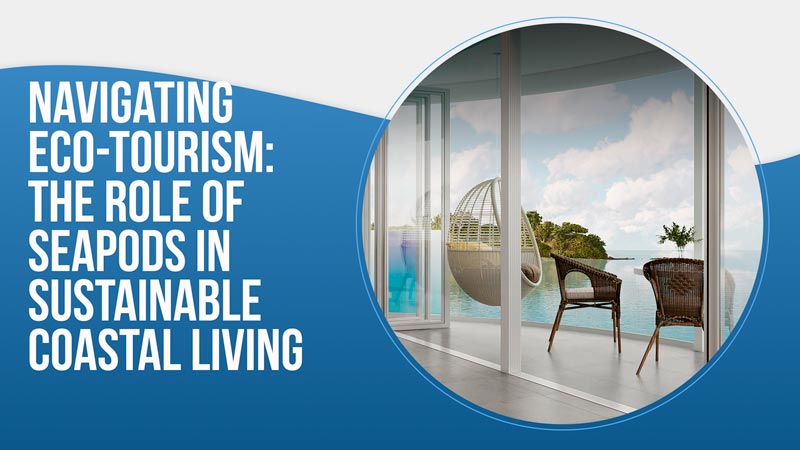
In a world where environmental consciousness is paramount, the intersection of sustainable living and tourism takes center stage. Enter SeaPods, the innovative floating homes by Ocean Builders, poised to redefine the landscape of eco-tourism.
This article explores the transformative role SeaPods can play in supporting and enhancing sustainable tourism while harmonizing with the natural beauty of coastal environments.
1. Blending with Nature
SeaPods are designed to seamlessly integrate with coastal ecosystems, providing an immersive experience for eco-tourists. Their low-impact design minimizes disruption to marine habitats, allowing visitors to connect with nature in a unique and responsible way.
2. Off-Grid Living and Renewable Energy
One of the key features of SeaPods is their commitment to off-grid living. Equipped with solar panels and sustainable energy solutions, SeaPods demonstrate how eco-tourism can thrive without placing a burden on traditional energy sources. Visitors can witness and learn about these renewable energy systems, promoting a deeper understanding of sustainable practices.
3. Educational Opportunities
SeaPod communities can serve as educational hubs, offering workshops, tours, and interactive experiences on marine conservation, sustainable living, and the importance of protecting coastal environments. This educational component enriches the eco-tourism experience, fostering a sense of responsibility and environmental stewardship among visitors. Add to this top-notch fish identification technology, and education just gets even better!
4. Preserving Fragile Ecosystems
Coastal areas are often fragile ecosystems that face threats from overdevelopment and irresponsible tourism. SeaPods, when strategically placed, offer a sustainable alternative to traditional resorts, minimizing the impact on delicate ecosystems and promoting the preservation of marine biodiversity. Beside preservation, SeaPods can actually participate in coral growth, as we employ a cutting-edge technique called “electrolytic mineral accretion” to accelerate coral regrowth.
5. Cultural Exchange and Community Engagement
SeaPod communities can serve as cultural hubs, allowing eco-tourists to engage with local communities in a meaningful way. Visitors can learn about traditional practices, local cuisines, and the rich cultural heritage of coastal regions, fostering a sense of appreciation and respect for the communities they visit.
6. Ocean Conservation Initiatives
Incorporating ocean conservation initiatives into the SeaPod experience can elevate the impact of eco-tourism. Whether through partnerships with marine research organizations or on-site conservation projects, SeaPods can actively contribute to the protection and rehabilitation of marine environments.
7. Water-Based Activities
SeaPods, by their nature, provide direct access to the water. Eco-tourists can engage in a variety of water-based activities such as snorkeling, kayaking, and sustainable fishing, promoting responsible tourism practices that respect the natural balance of coastal ecosystems.
8. Carbon Footprint Reduction
SeaPods’ emphasis on self-sufficiency and renewable energy contributes to the reduction of the carbon footprint associated with traditional tourism infrastructure. This commitment aligns with the principles of eco-tourism, where minimizing environmental impact is a core objective.
SeaPods represent a beacon of hope for the future of eco-tourism, demonstrating that responsible and sustainable living can coexist with the beauty of coastal environments. As these floating homes redefine the possibilities of coastal accommodation, they invite eco-tourists to embark on a journey that not only explores the wonders of the sea but actively contributes to its preservation. In the realm of sustainable tourism, SeaPods are not just accommodations; they are gateways to a harmonious and responsible relationship between humanity and the oceans we so deeply cherish.














